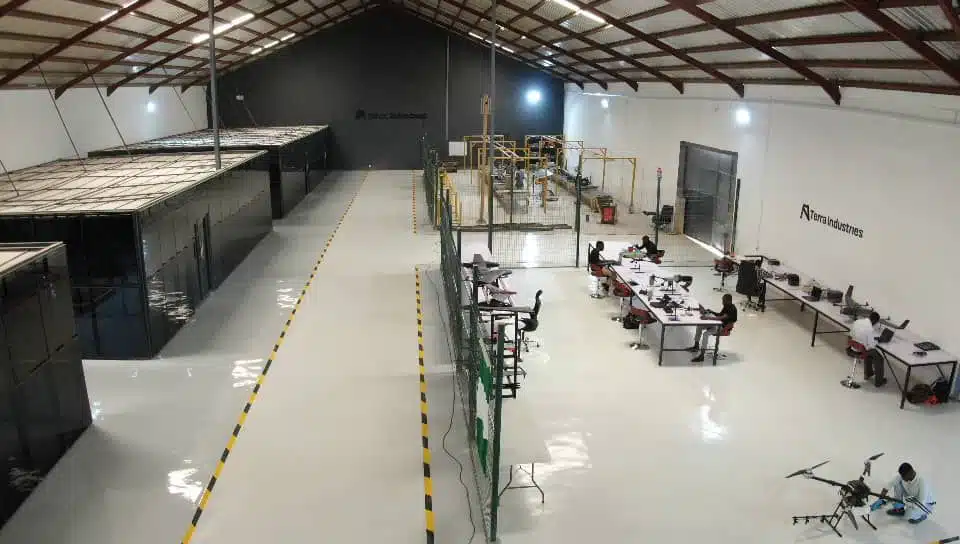When I asked Dawit Getachew* if he planned to buy an electric vehicle (EV), his answer was an immediate no.
“The price of getting one is very high, even with all the government subsidies,” he said.
In January 2024, Ethiopia became the first country to ban the import of fuel-powered vehicles, aiming to reduce the country’s fuel import spending. In 2023, Ethiopia imported $7.6 billion worth of fuel, roughly a third of the government’s $22 billion budget for the 2023/24 fiscal year (July 2023 to June 2024).
The ban on fuel-powered vehicles was accompanied by a push towards a greener, more sustainable environment, and was strengthened by huge tax breaks on the import of electric vehicles (EVs).
The country’s Ministry of Transport and Logistics says this move has led to an inflow of over 100,000 EVs into Ethiopia. However, the U.S. International Trade Administration puts this number at 30,000 personal and commercial electric vehicles, accounting for 2.5% of the 1.2 million registered vehicles in the country.
While Ethiopians claim it is possible to see between three and four EVs on a crowded highway in Addis Ababa, they remain largely inaccessible to the general population and are often not the vehicle of choice.
Why EVs remain out of reach
EVs in Ethiopia cost between ETB 1.8 million ($12,727) and ETB 2.5 million ($17,677). Ethiopians earn an average monthly salary of ETB 3,482 ($24.60) for low-income earners and ETB 27,010 ($190.90) for high-income earners.
Essentially, even the annual salary of a high-income earner can barely purchase an EV.
However, Anteneh Tesfaye, Founder and CEO at Ethiopian information and technology services company, Shega, explains that although EVs are expensive, they are no more expensive than the average car. The problem lies with the general car market in Ethiopia.

Victoria Fakiya – Senior Writer
Techpoint Digest
Stop struggling to find your tech career path
Discover in-demand tech skills and build a standout portfolio in this FREE 5-day email course
“Cars are overall a very expensive thing in Ethiopia. It is not something affordable for most people; it’s a luxury.”
There is one car to every 100 people in Ethiopia, making the country one of the lowest in car ownership globally. Before the ban on fuel-powered vehicles, the high tax requirements on vehicle importation ensured that the average Ethiopian could not afford a car.
Before the ban, the importation of a fuel-powered vehicle typically attracted significant taxes, including a 15% VAT, up to a 100% excise tax, a 10% surtax, and a 3% withholding tax. These high taxes, combined with foreign exchange fluctuations, have led to an increased demand for used vehicles, which are often more affordable than new ones.
EVs, on the other hand, are subject to only a 15% customs duty, which the government hopes will make them more affordable to the average Ethiopian. However, despite this huge tax break, EVs carry the same financial burden as combustion engine vehicles.
“EVs are comparably cheaper for the value. For example, I’d spend ETB 2.5 million in the past for a used car of about five to ten years old. But now, I’d be spending ETB 2.5 million for an EV, but a new car,” Tesfaye tells Techpoint Africa.
EVs are not more costly than other non-electric vehicles in Ethiopia; however, even with similar pricing and the offer of a newer, unused vehicle, the majority of Ethiopians who can afford a vehicle still prefer fuel-powered ones over EVs.
A reason for this is the need to purchase vehicles that retain their resale value. For the average Ethiopian who can afford to purchase a car, that purchase is an investment. The used car market, estimated at $482.77 million, is three times the size of the new car market in Ethiopia.
Essentially, there is a huge demand for used cars, and as a result, cars appreciate rather than depreciate, unlike in many other countries. Hence, a car owner in Ethiopia can sell a car for a price significantly higher than its original value after several years of use.
“Historically, everybody sells their car higher than it is bought. For example, I bought my car in 2022, and if I want to sell it now, I could probably sell it for 50-60% higher, taking into account factors like inflation,” Tesfaye says.
As many Ethiopians are concerned about resale value, EVs immediately take a backseat to fuel-powered vehicles because they do not offer the same resale value. EVs reportedly depreciate ten times faster in price and quality than fuel-powered vehicles.
“Many of my friends think EVs are good looking, but still, there are a lot of fears like how they have to change the batteries every 3 to 10 years,” Getachew says.
Moreover, because EVs are relatively new in Ethiopia, many Ethiopians are watchful to see how well they can be sustained. Many question the durability of EV batteries, the cost of replacing them over time, and the practicality of charging them with the limited number of charging stations available.
Reports estimate between 13 and 25 public EV charging stations in Ethiopia, with a majority located in Addis Ababa.
“To use an EV, you have to really design your life intentionally so that you don’t get stuck on the road. You can’t do spontaneous things because accessibility for charging is not like accessibility for fuel,” Tesfaye adds.
For electric motorcycles, however, the story is much different. Yuma Sasaki, Founder and CEO of Ethiopia-based EV company, Dodai, tells Techpoint Africa that electric motorbike users have it much easier than electric car users because electric motorbikes do not require the same charging infrastructure that cars do.
“You can charge electric motorbikes with power outlets at home. But that’s not the case for cars, where you need charging stations.”
He adds that for electric motorbike users, the major problem lies in a lack of financing. About 90% of people who buy Dodai’s motorbikes are gig workers and delivery companies that use them for commercial purposes.
Sasaki notes that a motorbike costs between $1,500 and $2,000, and buyers have to pay cash upfront. Because of this lack of financing, the market is ten times smaller than it could be.
Despite these challenges, Ethiopians remain optimistic about the potential for EVs in the country and express the need for the government to be more involved in bringing down the cost of EVs so more people can afford to purchase them.
*— Not real name










